- Home
- Steven Brust
Brokedown Palace Page 23
Brokedown Palace Read online
Page 23
Yes, perhaps this would, indeed, work. He ran his hand briefly up and down the leg, and smiled to himself. Was this a desecration or perhaps the expression of a sick perversion?
He stepped back and looked once more at the entire figure. Yes, there was beauty here. More importantly, there was power. He glanced around the courtyard. Still, no one seemed to be paying any attention to them.
"Let us begin," he said.
Bölk spun and kicked. There was a surprisingly loud thud as his hooves struck the figure's right leg, just at the knee.
"The knee is weak on a man," he remarked. "Why not on a statue? Or a Goddess?"
He kicked again. Miklós looked. Was there, perhaps, the slightest indication of a crack? In solid marble? But this was a táltos horse, after all.
Bölk kicked once more. Yes, there was a crack in the marble, at the knee.
Someone called, "Hey!" Miklós looked up and saw the two guards from the tower above the gate staring at him. "What are you doing?"
Miklós smiled and waved. Bölk kicked again, and a pyramid-shaped piece of marble fell from the knee. Bölk kicked again, and a larger piece fell.
Miklós looked around. Now they were beginning to receive attention. Servants and guards stared at them as if paralyzed, save for a few who were running toward the Palace, doubtless to tell someone.
Bölk kicked once more. "That will do for that leg," he said. He seemed to be blowing hard. Miklós realized with a shock that never before had Bölk shown any signs of exhaustion.
Bölk began kicking the other knee. Miklós watched the Palace door. It swung open, and László appeared. From where he stood, Miklós could see other forms behind him, standing on the planks that covered the hole in the Palace floor.
Bölk kicked again. László rushed toward them but stopped about twenty feet away, his eyes wide. Behind him came Andor, Sándor, Viktor, Mariska, and Brigitta.
None of them moved. Bölk kicked again. Miklós, turning his head, saw the figure begin to tilt. Andor gave a cry then and rushed forward, his expression one of mixed rage and anguish.
Miklós moved away from Bölk a little, to see which one he would attack. Andor's direction did not change—it was the horse. The fool! To attempt to battle a táltos horse, unarmed, was sheer idiocy. He was liable to get himself killed.
As he ran by, Miklós tripped him. Andor sprawled on his face. Bölk kicked the sculpture again. It tottered and seemed ready to go over.
He grabbed Andor's shoulders and pulled him. "Better get up, brother."
Andor rose to his knees and looked up at Miklós. "Why?" he whispered.
Bölk kicked again, then quickly walked away.
For an instant, the figure seemed to hang on by one knee. But it was leaning too far forward. There was a crumbling sound, and the Demon Goddess fell forward; landing first on her outstretched hands, then on her side next to where Andor had lain a few seconds before. To Miklós's surprise, the statue didn't shatter—or even crack, as far as he could tell.
Andor stared, stricken. Miklós looked at those around him, who stared at him wide-eyed.
"We should not have long to wait, master," said Bölk.
They didn't.
The dust had hardly settled over the fallen sculpture when it began. First, the wind picked up. It took a moment for Miklós to realize it, but the wind didn't seem to come from any one direction—it blew in everyone's face, whichever way he looked, and the dust on the ground was not disturbed. The sky seemed to darken, yet there were no more clouds than before. It was as if the sun were giving off less light. Less heat as well, it seemed, for Miklós was suddenly chilly.
Someone—Andor, perhaps—gasped. Miklós turned. Near the fallen idol, above the head, the air seemed to be shimmering. At first it looked like sunlight on the River; he couldn't quite look at the dancing, dazzling specks of light. Then it seemed to grow and weaken at the same time. Very gradually, it took a form slightly larger than human. Then, rather than turning into the Goddess, she seemed to appear from within it.
The winds died.
She must have been over nine feet tall. She wore shapeless gray robes, and her face was sharp and angular, her ears pointed, her eyes slightly slanted, her hair curled dark. She reminded Miklós of someone, but he couldn't remember who. He strained his neck looking up, but could read no expression on her face.
She pointed to the icon. Miklós noticed that each of her fingers had an extra joint. She said, "Who has done this?"
No one spoke. Miklós looked around and saw that he was the only one who had not fallen to his knees. It was strange that he had had no urge to do so, yet it had seemed involuntary with the others. It was even more strange how calm he felt.
He was prepared to find his voice and answer her, but there was no need. He was the only one not kneeling, and all of the others were looking at him. The Goddess turned to him fully. He could suddenly imagine that there was a shield around him, for her glance didn't seem to penetrate past the surface of his eyes. He could still read nothing in hers.
Then, as if from another world, a voice intruded. "I did it."
Miklós, startled, glanced in the direction of the voice. Brigitta had stood up. Her hands were on her hips, and the look on her face was stern, but Miklós could see that she was pale.
The Goddess looked at her and smiled. "You are very brave, little girl." Her voice was thin and airy, yet deep. It seemed to come from miles away. "But," she added, "I'm sorry to say that I don't believe you. Your effort speaks well of your—lineage." She laughed, then, but it was not an evil laugh; more a sad one.
She turned back to the Prince. "Your name is Miklós, is it not?"
He found his voice. "Yes, Goddess. I am Miklós."
"Why have you done this, Miklós?"
Of all she could have done or said, this was the most unexpected. How could he answer such a question. To kill you? Because my horse told me to? He finally managed, "To bring you here."
Someone, off to his left, gave a gasp. Probably Andor.
The Goddess looked around, and seemed to see Bölk for the first time. She said to Miklós, "The horse aided you."
Since it wasn't a question, Miklós didn't answer. It seemed none was needed. To the horse, she said, "You are Bölcseség, aren't you?"
"Yes, Goddess," said the horse. "I am surprised you remember me."
"You have changed."
"You have not."
"Is that why you think you can destroy me?"
"Yes."
"I must kill your new master, you know."
"I know."
"Then you."
"I know."
"I wish you had not forced this upon me."
"Perhaps it will work the other way, Goddess."
She laughed. "In that case, I will wish even more that you had not forced this upon me."
She's so human, thought Miklós.
Bölk didn't answer. She stirred then and said, "Well, let it be done as it must." She turned to László and said, "Oh, King, I am sorry that this must be, but it must. Perhaps you feel a need to intervene on your brother's behalf, yet feel loyalty to me. I do not wish to torment you so. Therefore, this!" Her hand moved slightly, and László jumped a bit, then stopped. Miklós had never seen anyone so still. He didn't even seem to be breathing.
"He is well," said the Goddess. "Merely unable to move. Now, let us be done. Are you prepared?"
Miklós faced her fully. What now, Bölk? You haven't seemed surprised by anything. What is to happen? What will prevent her from destroying me? It was unclear whether the terror that Miklós was holding at bay was stronger than his trust in Bölk but he had no choice so he couldn't find out. "I am ready," he said.
She pointed her right forefinger at him. There was a flicker of motion to his right. He saw that Brigitta was running toward him, and a cold fear paralyzed him for a moment, but she could never make it in time. Then there came a flash of blue from the Goddess's finger. At the same time, a dark shape
flashed in front of him, so close that he fell backward.
There was a loud crack followed by the sound of a falling body. Miklós rolled over and came to his knees.
Bölk lay on his side not far away.
"NO!"
He ran to the horse and saw there was a great rent in his side, and all around it were burn marks, as if a hole had been cut and a poor attempt made to cauterize the wound. Miklós could see the horse's ribs and pale strips of muscle pulsating, and the ground around him was covered with blood. Miklós knelt next to his head. "Bölk."
"Master, listen to me."
"Bölk, don't die!"
"It was necessary, master. Now, here is what you must do."
"Bölk! You can't—"
"Quiet, master. I had to. Now listen closely, or all is wasted and you will die."
"I don't care!"
"Yes, you do. You must."
"This is why you wouldn't tell me what you were going to do! You knew I'd never let you do this."
"Bring your head closer. I must whisper, for my strength is waning."
He shot a quick glance at the Goddess, who was watching sadly. She caught Miklós's eye. "I am sorry," she said. "We were allies once."
Then Bölk spoke to her. "If you please, Goddess, a word with my master before I die."
She frowned but nodded. There were no other sounds in the courtyard. The wind had died.
Miklós turned away from her and put his ear next to Bölk's mouth. An instant later he pulled away. "I cannot!" he said in a fierce whisper. There was commotion around him now, but he ignored it. He leaned closer and listened more. He shook his head, feeling overwhelmed with horror and disgust. Bölk continued to speak for a moment, then his head fell back against the ground.
The commotion stopped. Miklós looked around and saw Brigitta stretched out a little way away. He turned. "What—"
"She only sleeps, my sad Prince. Had she done as she wished, I would have had to kill her; yet I did not wish to leave her awake but unable to intervene, to watch you die."
Miklós felt he should thank her, but the words wouldn't come out of his mouth. He felt tears well up in his eyes and wondered how he could do what he must—what Bölk required of him.
"Stand away," said the Goddess. "I have no wish to further harm his body."
He stood up and steeled himself. "A moment," he said. "A request from Bölk before he died." Without giving her time to answer, he moved so he could shield his actions from her view and drew his knife.
"What are you doing?" she asked.
"Only what he wished," said Miklós, without turning around. Once, in the service of a lord of Faerie, he had butchered a calf. One slit to open up the rib cage, then reach in with the knife and… He knew what to do, and, hating himself, he did it.
It was only seconds later that, dropping the knife, he turned around. The Goddess saw what he held in his hands, and her eyes narrowed in disgust. "What is this?"
"He wished me to offer it to you, Goddess."
She stared at him. "I don't wish to have it, Prince."
A sudden, terrible anger flared in him. "I don't wish you to have it either, Goddess! Demon Goddess! You who kill me and my friends, while showering us with kindness—you deserve no part of him. But he said to give it, so, by the River, I'm going to give it to you one way or the other!" He took two steps forward, until he was inches from her. Then, into her face, he flung Bölk's severed heart.
She reeled back a step, and, with a wave of her hand, the heart vanished. Only a few drops of blood remained on her face. Her eyes lit up with rage, then widened in surprise.
Then she screamed.
The walls and the Palace seemed to shake, and he desperately tried to cover his ears. He found himself on his back, then he was rolling away. He looked up and saw that László was moving, and a quick glance showed him that Brigitta was stirring; but he couldn't look because the sound hurt too much. He kept rolling.
The scream ended abruptly. He glanced over, and the Goddess was on her knees. Her lips were moving, but Miklós heard no sound. Was she praying, he wondered? To whom?
She fell onto her face next to her idol and clawed the ground. Then, shimmering as she had when appearing, she vanished.
Beside her, the icon cracked in many places. Then it fell to pieces. Then the pieces crumbled to dust.
Silence settled over the courtyard.
Brigitta came to Miklós and put her arm around him. Andor gave one great sob, then ran off into the Palace. Miklós followed him with his eyes, understanding something of what he felt. He, too, had lost a god this day.
INTERLUDE
By now, it had filled the room completely. All four walls and the ceiling trapped its expansion. But the tremor that passed through the entire structure freed it from somnolence, and it began to push.
Gently, gently, so gently, but firmly, irresistibly, it began to push. The strengthened and reinforced walls felt it. They pushed back.
Who would win this match of strength? The chick, seeking to escape, or the egg, seeking to contain and smother it? The answer is unknowable, for things could not remain in this state; something else had to happen.
And something did happen: the scream of a dying Goddess pierced the air and the walls.
Even before the scream found its way into the room, that which grew there was having an effect on its enclosing structure. It couldn't break the walls, but it could bend them. And, when bent, perhaps they could break themselves. If anyone had happened to walk over that spot on the floor above, he would have noticed a bulge from where the ceiling in Miklós's room was being pushed up.
Then the scream came, at such volume and pitch that the very roots of the Palace vibrated for a moment in sympathy with the dying Goddess.
Now a few cracks appeared in the walls.
FOURTEEN
The Wake
She stroked his hair.
They sat in the courtyard, and Brigitta watched as Andor entered the Palace and Miklós followed him with his eyes. What was he thinking?
When she had worked at the sign of the Two Rivers, she had often carried the mugs of ale and glasses of wine without thinking about it while she amused herself by studying the people there, learning to read their faces and their gestures to see what they were thinking or guess at their conversations from across the room. She was good at it. Why couldn't she read Miklós? He mystified her. She had even been able to read Bölk.
That brought it back again.
Bölk and the Goddess and death.
The events had been going in and out of her head since she had awakened after the sleep the Goddess had cast upon her. Anger flared again, anger she knew was irrational. But to miss Miklós's moment of glory! To have seen him—but put that aside.
The King was looking at her. She felt herself flushing, and tossed her head defiantly. What must he think of her now? Casting herself at his brother now that he no longer wanted her. And why hadn't he sent her away?
She had risen in the world, though. To have been the King's, albeit for a while, would give her pleasant memories when she was old and ugly and—no! Don't think of it. Never think of it! But why was the King—?
Then she realized that he wasn't looking at her at all; he was looking at Miklós. In his face she read only shock. He had not yet accepted what had happened, perhaps couldn't accept it. When he did—then what? Would he have Miklós put to death? She must help him get away from here! She looked at him then, and knew that he would never leave. This was his home.
Why wasn't she afraid of him? He was a Prince, which ought to count for something. And more, he had slain the Goddess. She ought to be afraid to touch him. Strange.
She looked closely at Miklós, trying to see what he needed now. Did he want to be left alone? Why couldn't she tell? Perhaps that was what fascinated her so much about him. And it was fascination—or had been at first. The mysterious vanished Prince, practically walking into her in the middle of the night. But it was more
than that, now. He was gentle, sometimes too gentle, she thought wryly. And the way he moved—so graceful, as if he danced. And his shocking innocence never failed to amaze and delight her.
He was staring now, at Bölk. That brought it back again. Bölk—she couldn't think of him as a horse, táltos or not. He was a friend. They had only spoken a few times, but he could see down to the tiniest hidden corner of her soul and liked her anyway. Everyone, it seemed, had the feeling that, "If he knew me he would despise me," and most knew that it wasn't true. But the certain knowledge that there was someone who knew her and still liked her brought her a kind of peace she had never felt before.
But Miklós was like that too, almost. He didn't know her, but she knew, without trying it, that if she were to dredge up her most shameful secrets, he would find ways to tell her that it was all right, that none of those were horrible things. That was how he was. She smiled to herself. Yes, my Prince. I am starting to know you. I still can't tell what you're thinking about, but I'm starting to know you.
She looked up suddenly and saw László standing over them, looking at Miklós. He stared back.
"You have slain the Goddess," said the King, whispering.
"Yes," said Miklós.
László shook his head. His mouth moved between the shape for "How" and "Why," but no sound came forth. Miklós only shook his head. At last László took a deep breath and said, "I must think, Miki. Do not leave here. I will speak with you and—do whatever I must."
He turned and walked back into the Palace.
Miklós stared at the ground. Brigitta squeezed his arm. He stirred, then stood up. "He doesn't want to kill me," he said, as if this surprised him.
She stood up also. He gave her his arm without thinking. They walked to Viktor, who still watched the empty pedestal. Viktor looked at Miklós, and Brigitta read hate—hate so strong it almost took her breath away. Viktor was hiding it well, so Miklós probably didn't see it, but it was clear to Brigitta. Miklós said, "Viktor, have someone dig a hole. Here, in the courtyard. I want the horse buried next to the pedestal. I'll find something to put over it later."

 Phoenix
Phoenix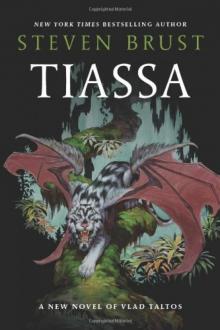 Tiassa
Tiassa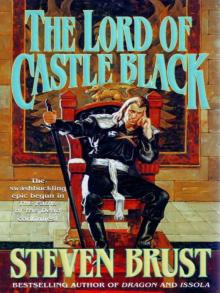 The Lord of Castle Black
The Lord of Castle Black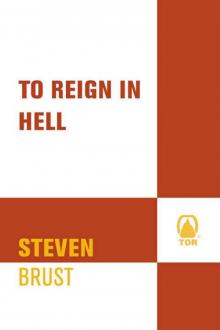 To Reign in Hell: A Novel
To Reign in Hell: A Novel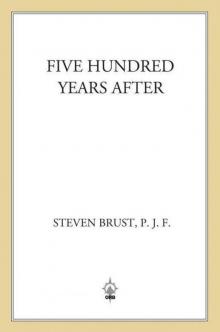 Five Hundred Years After (Phoenix Guards)
Five Hundred Years After (Phoenix Guards)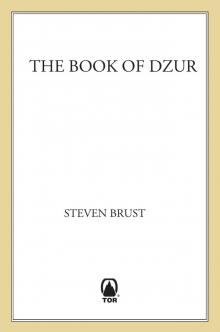 The Book of Dzur: Dzur ; Jhegaala
The Book of Dzur: Dzur ; Jhegaala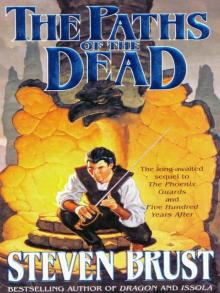 The Paths of the Dead
The Paths of the Dead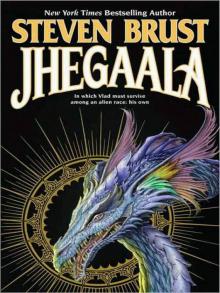 Jhegaala
Jhegaala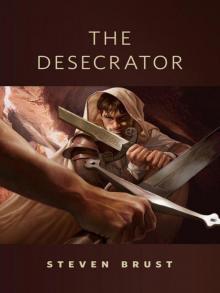 The Desecrator: A Tor.com Original
The Desecrator: A Tor.com Original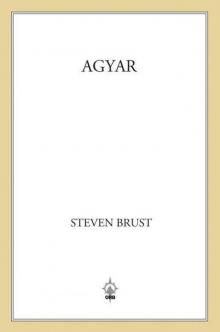 Agyar
Agyar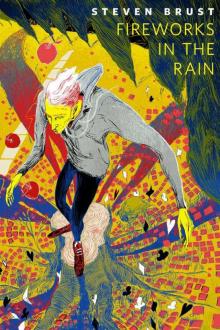 Fireworks in the Rain
Fireworks in the Rain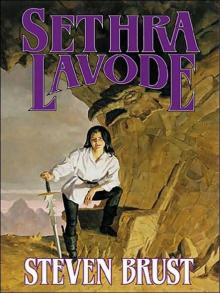 Sethra Lavode
Sethra Lavode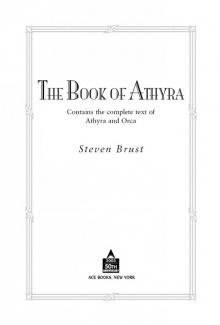 The Book of Athyra
The Book of Athyra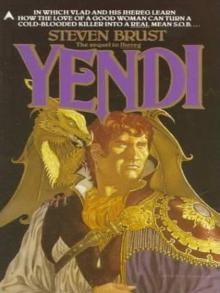 Yendi
Yendi Good Guys
Good Guys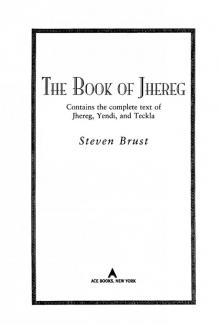 The Book of Jhereg
The Book of Jhereg Cowboy Feng's Space Bar and Grille
Cowboy Feng's Space Bar and Grille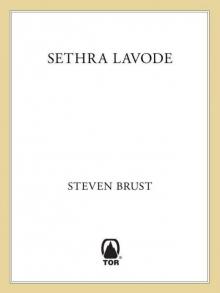 Sethra Lavode (Viscount of Adrilankha)
Sethra Lavode (Viscount of Adrilankha) My Own Kind of Freedom
My Own Kind of Freedom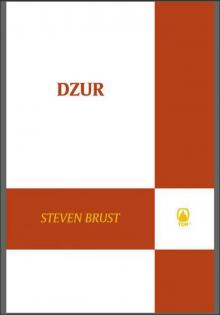 Dzur (Vlad Taltos)
Dzur (Vlad Taltos)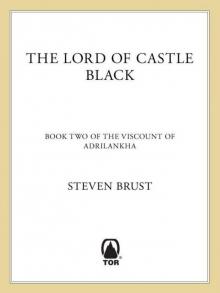 The Lord of Castle Black: Book Two of the Viscount of Adrilankha
The Lord of Castle Black: Book Two of the Viscount of Adrilankha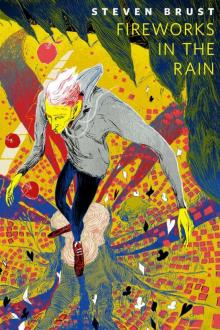 Fireworks in the Rain: A Tor.Com Original
Fireworks in the Rain: A Tor.Com Original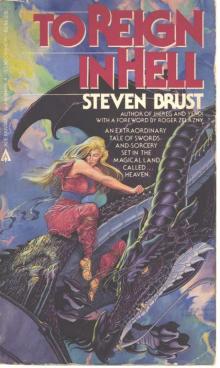 To Reign In Hell
To Reign In Hell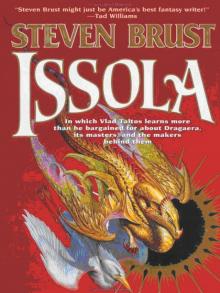 Issola
Issola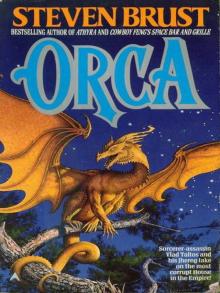 Orca
Orca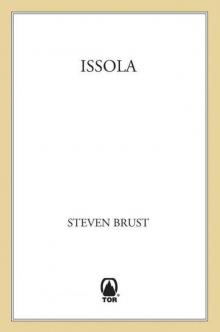 Issola (Vlad Taltos)
Issola (Vlad Taltos)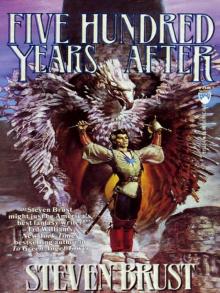 Five Hundred Years After
Five Hundred Years After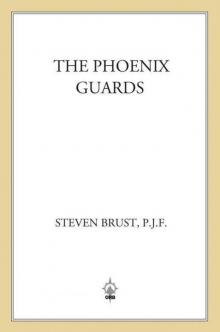 The Phoenix Guards
The Phoenix Guards Taltos
Taltos![[Vlad Taltos 06] Athyra Read online](http://i1.bookreadfree.com/i1/03/24/[vlad_taltos_06]_athyra_preview.jpg) [Vlad Taltos 06] Athyra
[Vlad Taltos 06] Athyra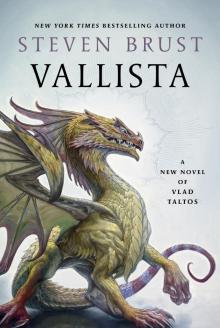 Vallista--A Novel of Vlad Taltos
Vallista--A Novel of Vlad Taltos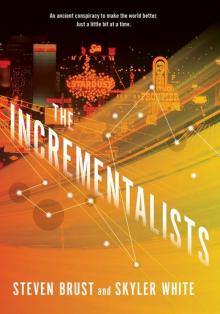 The Incrementalists
The Incrementalists![[Vlad Taltos 04] Taltos Read online](http://i1.bookreadfree.com/i/03/24/[vlad_taltos_04]_taltos_preview.jpg) [Vlad Taltos 04] Taltos
[Vlad Taltos 04] Taltos![[Vlad Taltos 03] Teckla (v 1.1) Read online](http://i1.bookreadfree.com/i1/03/27/[vlad_taltos_03]_teckla_v_1_1_preview.jpg) [Vlad Taltos 03] Teckla (v 1.1)
[Vlad Taltos 03] Teckla (v 1.1)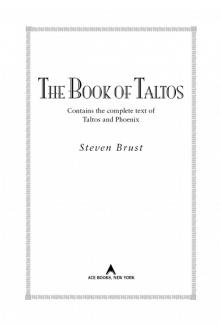 The Book of Taltos
The Book of Taltos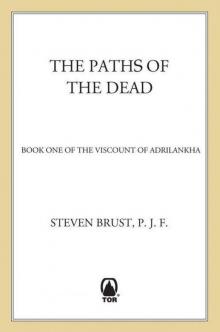 The Paths of the Dead (Viscount of Adrilankha)
The Paths of the Dead (Viscount of Adrilankha) Jhegaala (Vlad Taltos)
Jhegaala (Vlad Taltos)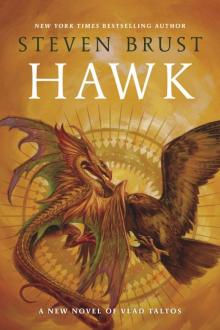 Hawk (Vlad)
Hawk (Vlad)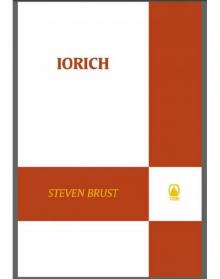 Iorich
Iorich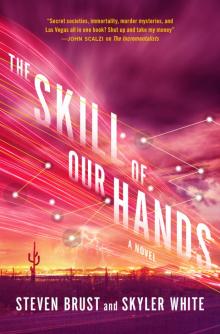 The Skill of Our Hands--A Novel
The Skill of Our Hands--A Novel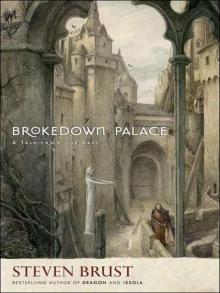 Brokedown Palace
Brokedown Palace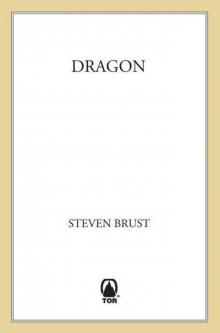 Dragon (Vlad Taltos)
Dragon (Vlad Taltos) Dragon
Dragon Athyra
Athyra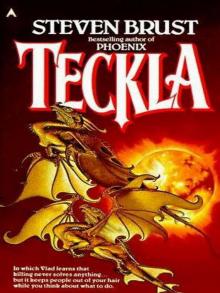 Teckla
Teckla Dzur
Dzur